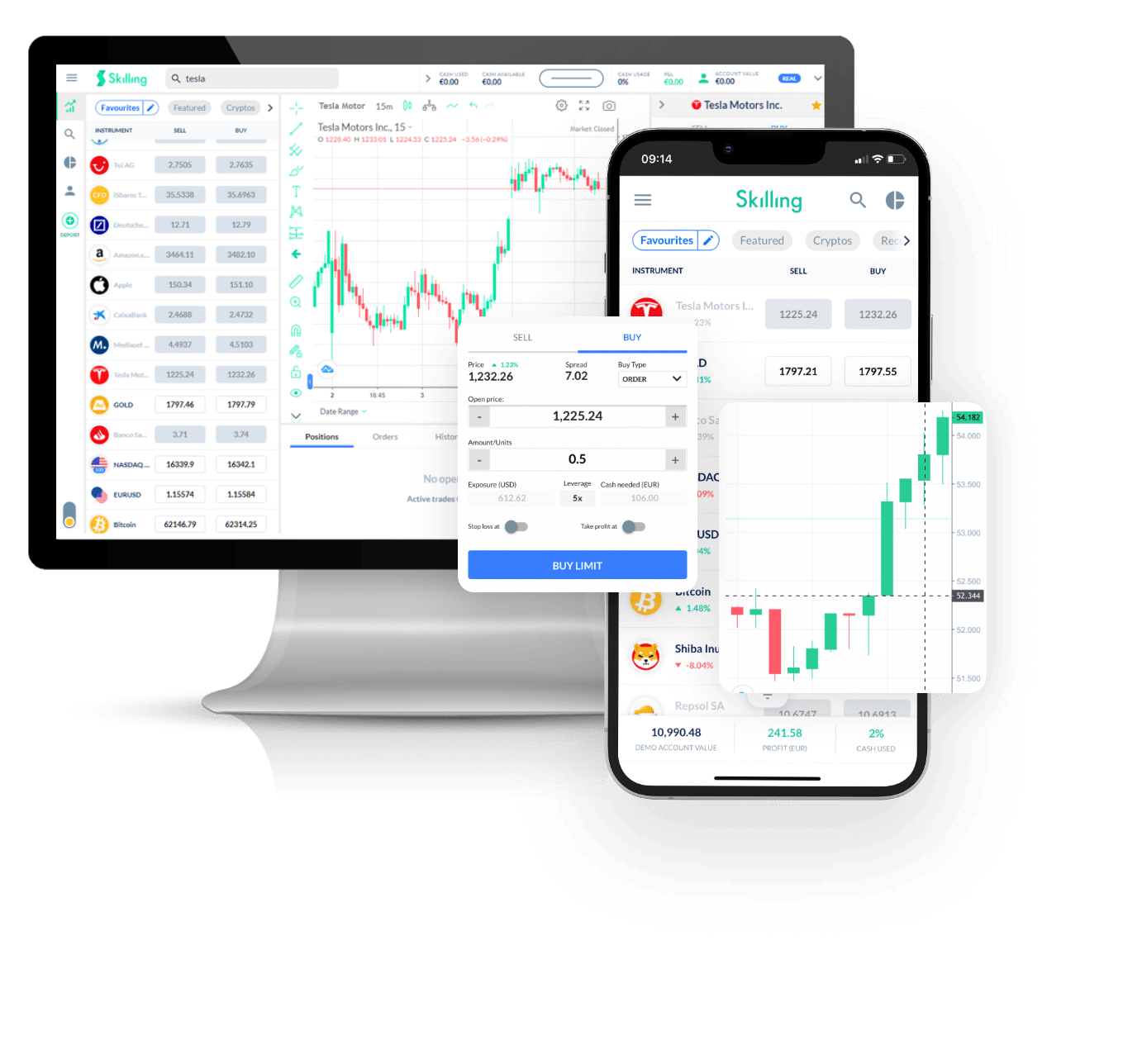Loading...
Trade [[data.name]]
[[ data.name ]]
[[ data.ticker ]]
[[ data.price ]] [[ data.change ]] ([[ data.changePercent ]]%)
Low: [[ data.low ]]
High: [[ data.high ]]
About
History
Why trade?
About
History
Why trade?
The TNOTE index 10-year US Bond CFD tracks the performance of the most liquid and widely traded US bonds. It can be used as a benchmark for pricing other US bond instruments, including mortgage-backed securities and treasury notes. This CFD provides a great opportunity to trade on the volatility of one of the world's largest bond markets.
With TNOTE, traders can take advantage of opportunities to capitalize on rising and falling yields as global economic conditions change. Significantly, this CFD also provides the added benefit of leverage, allowing traders to increase their exposure without significantly increasing capital requirements. With the right trading strategy, TNOTE 10-year US Bond CFD could be a great way to profit from the changing bond market.
The 10-year US Bond CFD (TNOTE) has seen a number of significant price movements over the past decade. The contract was created in 2009, and since then it has been trading in a range from 1.5% to 3%. In 2011, US Bonds surged on the anxiety surrounding the eurozone debt crisis, sending prices up to 3.2%.
However, prices then began to decline and the contract bottomed out at 1.5% in 2012. Over the next few years, prices seesawed between 2-3%, before spiking again in 2016 due to worry over a global slowdown. Prices have since come back down, trading just above 2% as of April 2019. The 10-year US Bond CFD is a great way to gain exposure to the bond market.
The 10-year US Bond CFD is a derivative instrument based on the underlying US Tnote futures contract. Trading 10-year US Bond CFDs offers some major advantages over trading the actual futures contract, including lower margin requirements and greater flexibility in terms of entry and exit points. Additionally, traders can benefit from the cost savings associated with not having to pay commissions and other associated costs.
This makes the 10-year US Bond CFD an attractive option for both long and short-term traders seeking to capitalize on price movements in the bond markets. With leverage, low fees, and a wide range of expirations available, trading 10-year US Bond CFDs provides an efficient way to access the bond markets.
| Swap long | [[ data.swapLong ]] points |
|---|---|
| Swap short | [[ data.swapShort ]] points |
| Spread min | [[ data.stats.minSpread ]] |
| Spread avg | [[ data.stats.avgSpread ]] |
| Min contract size | [[ data.minVolume ]] |
| Min step size | [[ data.stepVolume ]] |
| Commission and Swap | Commission and Swap |
| Leverage | Leverage |
| Trading Hours | Trading Hours |
* The spreads provided are a reflection of the time-weighted average. Though Skilling attempts to provide competitive spreads during all trading hours, clients should note that these may vary and are susceptible to underlying market conditions. The above is provided for indicative purposes only. Clients are advised to check important news announcements on our Economic Calendar, which may result in the widening of spreads, amongst other instances.
The above spreads are applicable under normal trading conditions. Skilling has the right to amend the above spreads according to market conditions as per the 'Terms and Conditions'.

Trade [[data.name]] with Skilling
All major indices at industry-leading pricing.
Gain exposure to global markets via lower-risk, stock market indices.
- Trade 24/5
- Minimum margin requirements
- The tightest spreads
- Easy to use platform
Why Trade [[data.name]]
Make the most of price fluctuations - no matter what direction the price swings and without capital restrictions that come with buying the underlying asset.
CFDs
Indices
Capitalise on rising prices (go long)
Capitalise on falling prices (go short)
Trade with leverage
Hold larger positions than the cash you have at your disposal
Trade on volatility
No need to own the asset
No commissions
Just low spreads
Manage risk with in-platform tools
Ability to set take profit and stop loss levels

